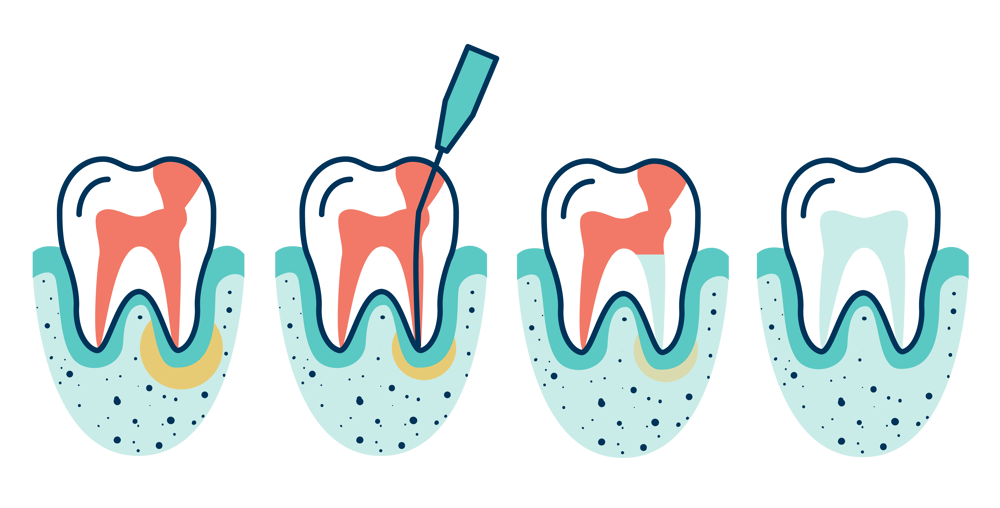What is a root canal?
Inside every tooth there is a fine canals known as root canals. These contain the dental pulp, which consists of nerves and blood vessels. If the dental pulp dies or is diseased, people experience toothache or an abscess occurs. Root canal treatment is carried out to save the tooth.
There can be a number of reasons for pulp becoming diseased:
- Decay
- Trauma
- Deep cavities
- Extreme wear
- Tooth fracture or a crack in the tooth
To improve the chances of success, root canal treatment should start as soon as possible after a problem is identified.
